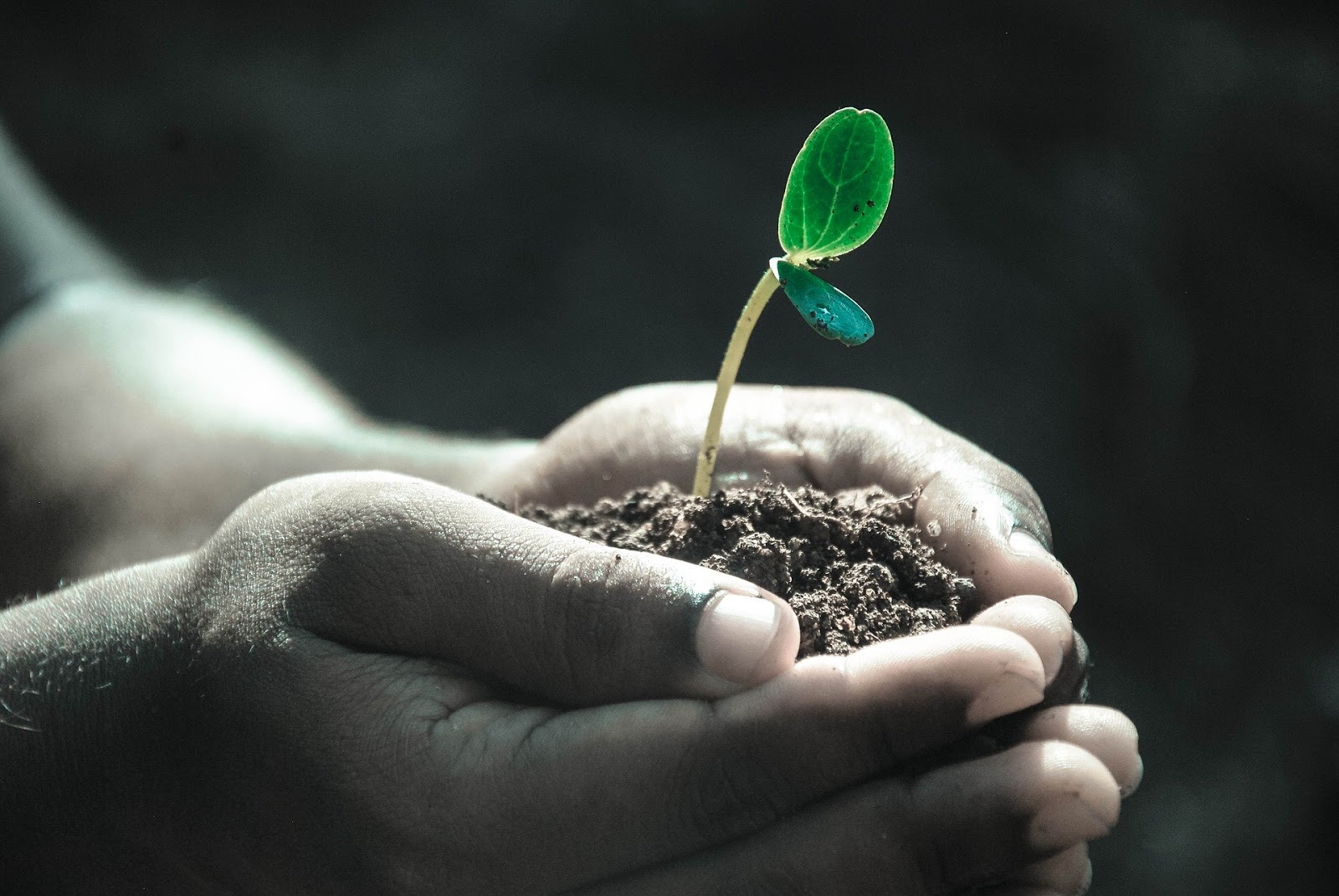How Do Plants Talk?
Most people have heard that talking to plants will help them grow, but how do plants communicate with each other? Plants communicate with each other using volatile organic compounds or VOCs. VOCs allow plants to “speak” with other plants and organisms. Plants send out VOCs when they are in danger so that other plants can defend themselves. If one plant is being attacked by an insect, it will send out signals to warn other plants. The neighboring plants will then develop a defense mechanism against the insect, such as producing a substance that renders the plant indigestible. Plants can detect certain insects by their saliva and send out VOCs to attract the predators of the insects trying to eat them.
VOCs are not used just as a defense mechanism but also to aid in pollination. These chemicals can also be used to eliminate competition among territories. Certain plants will release chemicals to kill off neighboring plants to increase survival and destroy competitors of nutrients. Plants also use VOCs to aid in communication with certain animals, such as bats, to support plant growth. Some plants are shaped a certain way so that when bats use their echolocation they can easily find the plant. You can even smell released VOCs from plants like lavender or herbs when cooking.
Music For Growth
Now that we know a little about how plants communicate we can explore ways to help plants grow. Not only does talking to your plants help them grow, but playing music for them will also aid their growth. Music is thought to help plant growth because of the vibrations of sound waves. While these vibrating sound waves promote plant growth, not all music is beneficial to plants. Plants “like” certain genres better than others. Classical music has been shown to stimulate plant growth while metal has been shown to actually produce plant death. Metal and rock music have stronger vibrations which disrupt plant growth, while classical produces softer vibrations. Plants have also been shown to lean or grow towards where the music is coming from in the same way that they lean towards the sun.
While playing your plants music is beneficial to their growth, you should not always play music. Constant sound vibrations can actually hinder plant growth, so be sure to give your plants a break. You can make your own playlist for your plants or you can find a playlist specifically made to assist plant growth. The soft sounds of classical and jazz music imitate sounds found in nature like wind and birds, this then encourages plants to grow. Music can also open plant stomata which increases air flow to the plants.
Plant Families
Plants are a competitive species. They will increase their root growth to interfere with a neighboring plants ability to absorb nutrients from soil, but plants have been observed to be kinder to their siblings. Studies have shown that plants growing near their siblings will not increase root growth and may even intertwine around each other. Meanwhile, when a foreign plant is introduced, they will compete for space. Plants that are introduced to stranger plants will grow away from the other plant and since they are competing for nutrients one or both plants may be malnourished. Using plants from the same mother when gardening will lessen the competition between plants.
Do Your Plants Like Being Touched?
Many people like to lovingly pet their plants, but do your plants like it? Touching plants has been linked to gene changes in the plants that hinder growth. While some plants are indifferent to touch, other plants like the “Tickle Me Plant”, or Mimosa pudica, are not fond of human touch. The Mimosa pudica will actually close its leaves and may appear dead when touched by humans. These plants are so sensitive to touch that they react negatively to protect themselves. Human touch can not only stunt a plant’s growth, but could also possibly kill them. Plants react to touch from insects, humans, animals, and other plants by somewhat changing their genes as a defense mechanism. A plant that is repeatedly touched will have more of a negative reaction than a plant that has been touched once.
The Sound of Plants
Plants have recently been discovered to make high pitched noise when stressed or in danger. A study done on tobacco and tomatoes showed that the plants emitted a high pitch noise, somewhat like a scream, when they were thirsty or cut. Healthy plants, on the other hand, were shown to make less noise than stressed plants. They are able to make “noise” by cavitation. Cavitation is the process of air bubbles forming and popping in plants that cause vibrations. These vibrations are thought to be able to be heard by some mammals and insects but can also be heard by humans with the help of microphones. An exhibit in Brooklyn featured plants embedded with microphones so that visitors can hear the sounds plants make; these noises include the ones plants make when being touched, the sound of water absorption, and even the sound of them growing (1).
To get involved or learn more about gardening, plant growth, and farming visit Fleet Farming!
Works Cited:
“5 Ways Plants Communicate.” Mental Floss, 23 July 2015, www.mentalfloss.com/article/66302/5-ways-plants-communicate.
ABC News, ABC News Network, abcnews.go.com/Technology/story?id=98743&page=1.
Barry, Laura. “The Music You Play at Home Can Affect How Your Plants Grow.” Better Homes and Gardens, 25 Oct. 2019, www.bhg.com.au/indoor-plants-listen-to-music.
Dan. “Plant Communication.” Medium, Welltended, 31 Aug. 2017, medium.com/welltended/plant-communication-55125df0417.
“Home.” Online Flower Delivery, www.floweraura.com/blog/how-can-plants-recognize-their-siblings.
in Biology, Science | December 10th. “Plants Emit High-Pitched Sounds When They Get Cut, or Stressed by Drought, a New Study Shows.” Open Culture, www.openculture.com/2019/12/plants-emit-high-pitched-sounds-when-stressed.html.
Nelson, Bryan. “Plants Really Don’t like to Be Touched.” MNN, Mother Nature Network, 20 Dec. 2018, www.mnn.com/your-home/organic-farming-gardening/stories/plants-really-dont-be-touched.
Neverman, Laurie. “Music for Plants – What Helps Plants Grow and What Doesn’t.” Common Sense Home, 11 Feb. 2020, commonsensehome.com/music-for-plants/.
“Plants Recognize Rivals and Fight, Play Nice with Siblings.” LiveScience, Purch, www.livescience.com/5793-plants-recognize-rivals-fight-play-nice-siblings.html.
“Playing Music For Plants – How Does Music Affect Plant Growth.” Gardening Know How, 12 Nov. 2019, www.gardeningknowhow.com/garden-how-to/info/how-music-affects-plant-growth.htm.
Solly, Meilan. “Listen to the Sounds of Succulents at the Brooklyn Botanic Garden.” Smithsonian.com, Smithsonian Institution, 28 Aug. 2019, www.smithsonianmag.com/smart-news/listen-sounds-succulents-brooklyn-botanic-garden-180973004/.
Ueda, Hirokazu, et al. “Plant Communication: Mediated by Individual or Blended VOCs?” Plant Signaling & Behavior, Landes Bioscience, Feb. 2012, www.ncbi.nlm.nih.gov/pmc/articles/PMC3405699/.
Vanderlinden, Colleen. “Does Talking to Plants Really Make Them Grow?” The Spruce, The Spruce, 18 Oct. 2019, www.thespruce.com/should-you-talk-to-your-plants-3972298.
Vaughan, Adam. “Recordings Reveal That Plants Make Ultrasonic Squeals When Stressed.” New Scientist, 5 Dec. 2019, www.newscientist.com/article/2226093-recordings-reveal-that-plants-make-ultrasonic-squeals-when-stressed/.
VioletteRose. “The Touch-Sensitive Plants Known as Mimosa Pudica or Touch-Me-Not.” Dengarden, Dengarden, 2 May 2019, dengarden.com/gardening/The-Touch-Sensitive-Plants-Known-As-Mimosa-Pudica-Or-Touch-Me-Not.
“Your Plants Probably Hate Being Touched.” Curiosity.com, curiosity.com/topics/your-plants-probably-hate-being-touched-curiosity/.

